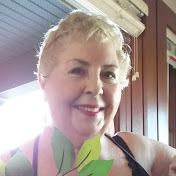About
Marlene Moore is a Canadian composer living in Southern California. She is a composer, pianist and recording artist. Her original music is heard internationally over FM radio . Much of her music is licensed for film and television. The BACK TO BASICS PIANO METHOD CURRICULUM BOOKS took 10 years to write. It took another 10 years to write the BACK TO BASICS companion books that deal with composition, sight reading, practice, rhythms and theory.There are 22 books all together in this series. Teachers and students find the books to be logical, uncluttered and very interesting. Marlene started off as a school teacher for 5 years. This was followed by several years of performing. Eventually she performed many recitals of her own music. Marlene has played on cruise ships and has conducted many workshops on PERFORMING WITHOUT FEAR. She taught piano for 50 years and has trained many new piano teachers. Marlene is also a landscape artist. She is now semi-retired and she divides her time between painting landscapes, composing new music and marketing the BACK TO BASICS PIANO METHOD CURRICULUM BOOKS. She lives in Southern California with her husband, Michael Wulf.
